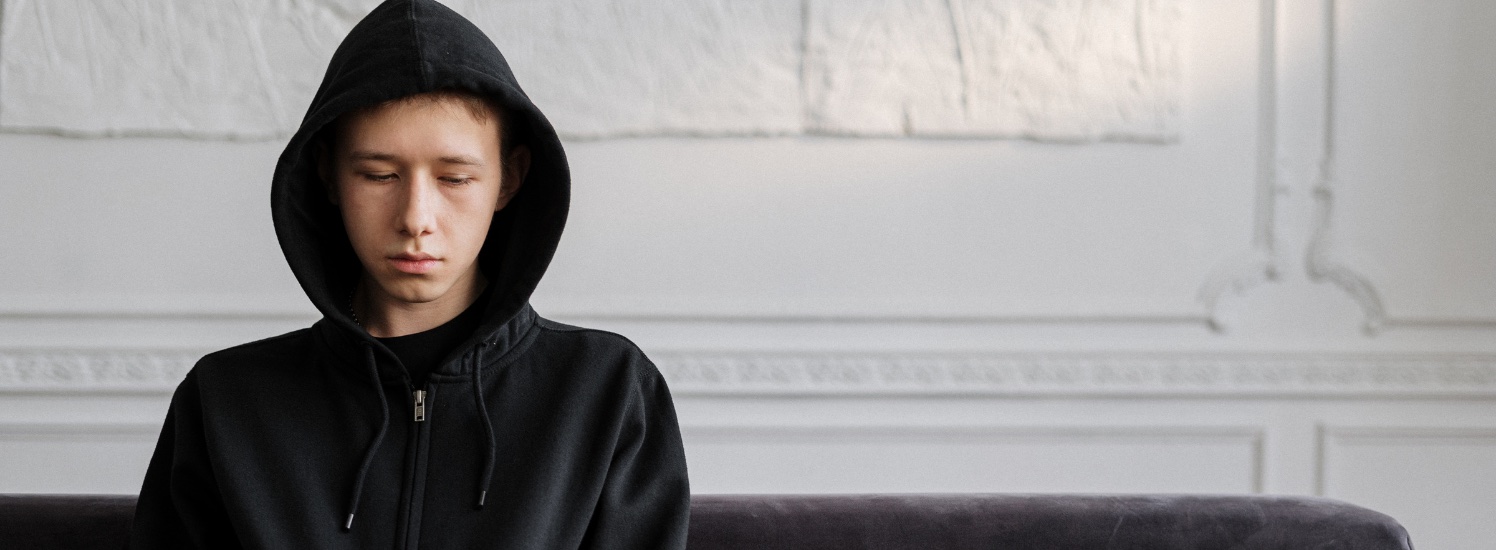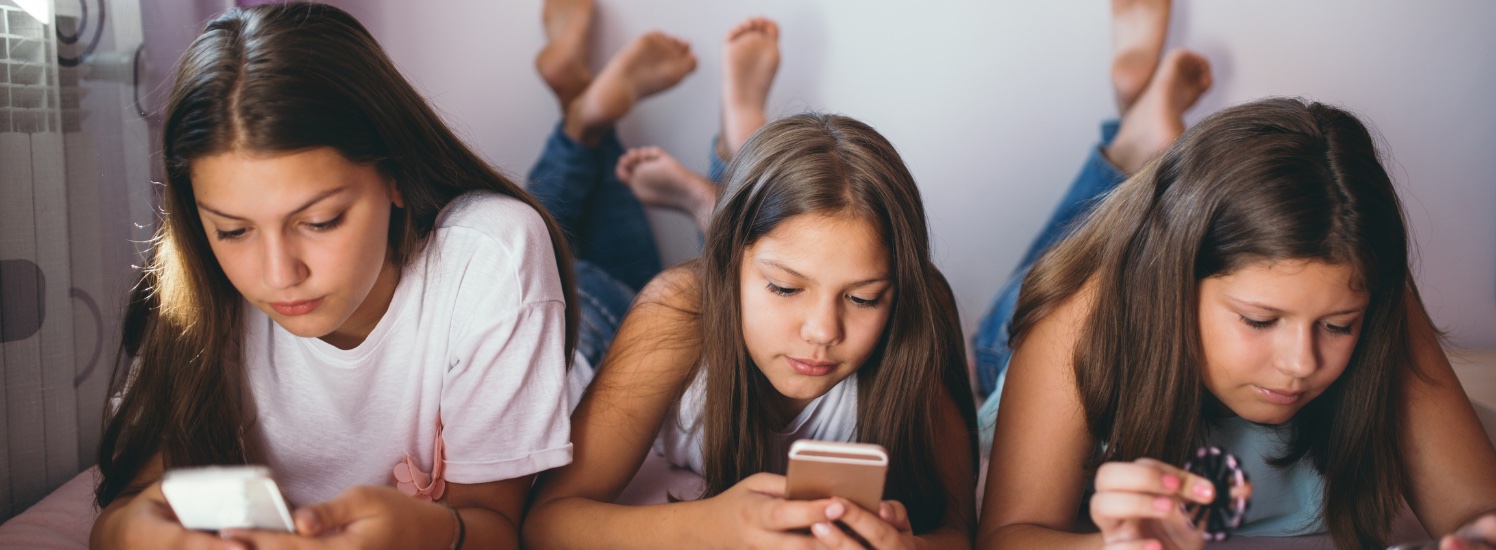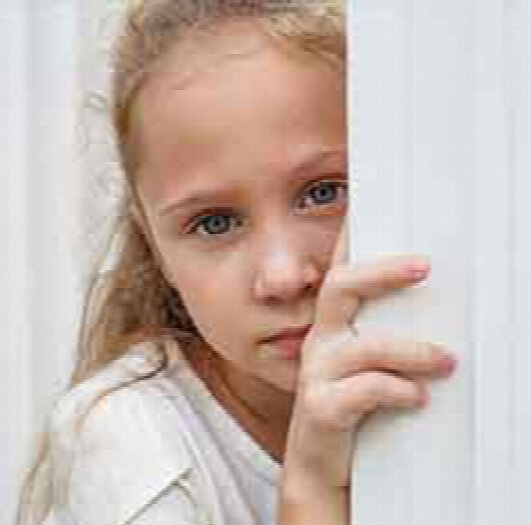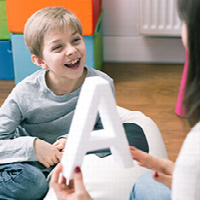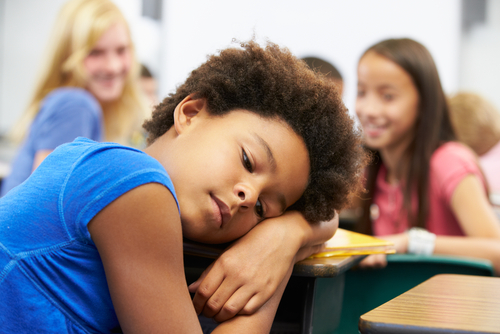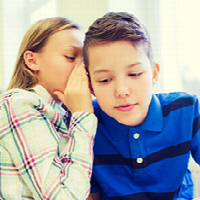How Social Anxiety Differs from Shyness: How to Help Your Child
It is not uncommon for parents, teachers, and medical professionals to describe a child as shy. Shyness is a common trait seen in young children and is not a cause for concern. Teachers usually refer to shy children as being “introverted” and/or “cautious.” Shy children don’t jump at the chance to speak in front of their class, but will do so when necessary. Oftentimes, shy children don’t have a broad group of friends, but they are content in smaller groups of children with similar interests. Parents report that their shy children don’t accept every single birthday party invitation, but will attend parties in a familiar and comfortable setting.
Shyness is not a cause for concern and is a typical characteristic in many children and adults. Social anxiety is far different from shyness, and it is important for parents to accurately identify the symptoms, to acknowledge how social anxiety can impact their child’s life, and to take action to support their child.
According to the National Institute For Mental Health, "Social anxiety is a mental health condition. It is an intense, persistent fear of being watched and judged by others. This fear can affect work, school, and other day-to-day activities.” Children with social anxiety often feel dizzy and sick at the thought of being called upon in class. They are anxious about participating in classroom discussions, even when they are familiar with the material.
Social anxiety is prevalent throughout the world. According to a study by Mekuria and colleagues (2017), social anxiety varies from country to country. In high-income countries, 3.5% to 21% of the population have reported social anxiety. In developing countries, the available literature suggests that the social anxiety rate is higher, with 10.3% to 27% of the population reporting social anxiety.
How Can a Parent Identify Social Anxiety in Their Child?
Although social anxiety is different than shyness, it usually develops in shy children. Kids with social anxiety worry about being judged negatively by others. They are terrified of doing or saying the wrong thing. To a young child, this fear feels uncontrollable and can become worse when parents push them to participate in activities that are unfamiliar or scary to them. According to the Child Mind Institute, “children with social anxiety are often inordinately fearful of criticism. They sometimes throw tantrums and cry when confronted with a situation that terrifies them.” If this sounds like your child, he or she may also exhibit physical symptoms such as shaking, sweating, and/or shortness of breath. It is important for parents to understand that these symptoms can appear days before an anticipated event, and that they should be taken seriously.
How Can Social Anxiety Impact a Child’s Life?
If left untreated, social anxiety can limit a child's ability to speak in public and may cause them to avoid interactions with unfamiliar people and to stay away from places that might bring on symptoms. Your child may fear school, eating in public, and using public restrooms. He or she may have difficulty connecting with peers and may become isolated and depressed. The National Institute of Health reports that when social anxiety is untreated, it runs a chronic course through adolescence and eventually adulthood. In adolescence, social anxiety involves fewer friends; difficulty participating in classroom activities, such as working in groups; and avoiding social interactions, such as joining school clubs or sports. This social impairment can lead to loneliness, dysphoric moods, difficult life transitions, suicidal ideation, and risk for substance abuse and depression.
How Can a Parent Help a Child with Social Anxiety?
The best thing you can do for your child is to educate yourself on the difference between shyness and social anxiety. Talk to your family physician about your child’s symptoms, and ask to be referred to a mental health professional who specializes in social anxiety in adolescents. The mental health professional will usually meet with you and your child several times before making a diagnosis. After diagnosis, psychotherapy, medication, or a combination of both may be used to treat social anxiety. According to the National Institute of Mental Health, people with social anxiety disorder obtain the best results with a combination of medication and cognitive-behavioral therapies.
Psychotherapy for Children with Social Anxiety
According to The Clinical Psychology Review, “the most well-researched treatments for social anxiety disorder are cognitive-behavioral therapies (CBTs).” Cognitive-behavioral therapy helps children learn strategies to help them react to situations in a way that makes them feel less anxious and fearful. Mental health professionals can also help children prepare to deal with anxiety-provoking situations.
Medication for Children with Social Anxiety
There are three types of medication used to help treat social anxiety disorder in children:
- Anti-anxiety medications work quickly to treat anxious feelings on a short-term basis; however, children may build a tolerance to them over time.
- Antidepressants are primarily used to combat the symptoms of social anxiety on a long-term basis. In contrast to anti-anxiety medications, they take several weeks to start working, but are highly effective and are dependence resistant.
- Beta-blockers are medications that can help block some of the physical symptoms of anxiety, such as an increased heart rate, sweating, and tremors. Oftentimes, beta-blockers cannot reduce enough of the symptoms to provide relief, and can result in low blood pressure.
The best thing you can do for your child is to talk with your their pediatrician and mental health professional about his or her symptoms, and work together to formulate a plan that will best suit your child's individual needs. Compassion, education and an open mind will go a long way in supporting the long-term success of your child's social anxiety.Encourage your child and celebrate small successes along the way.
Author:
ChildNEXUS.com Team Member
Sources:
https://socialanxietyinstitute.org/shyness-or-social-anxiety-disorder



